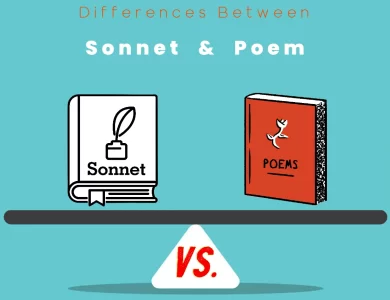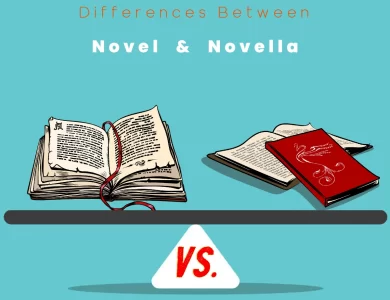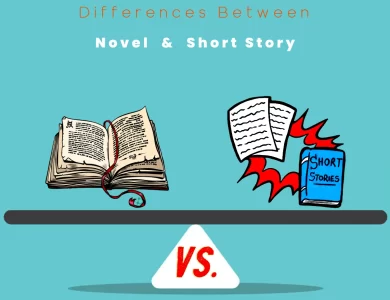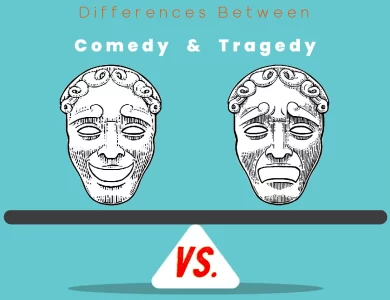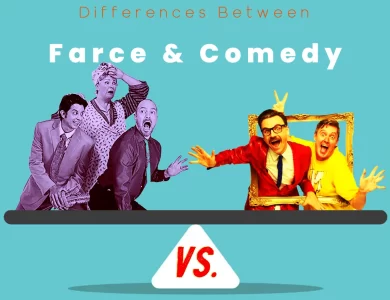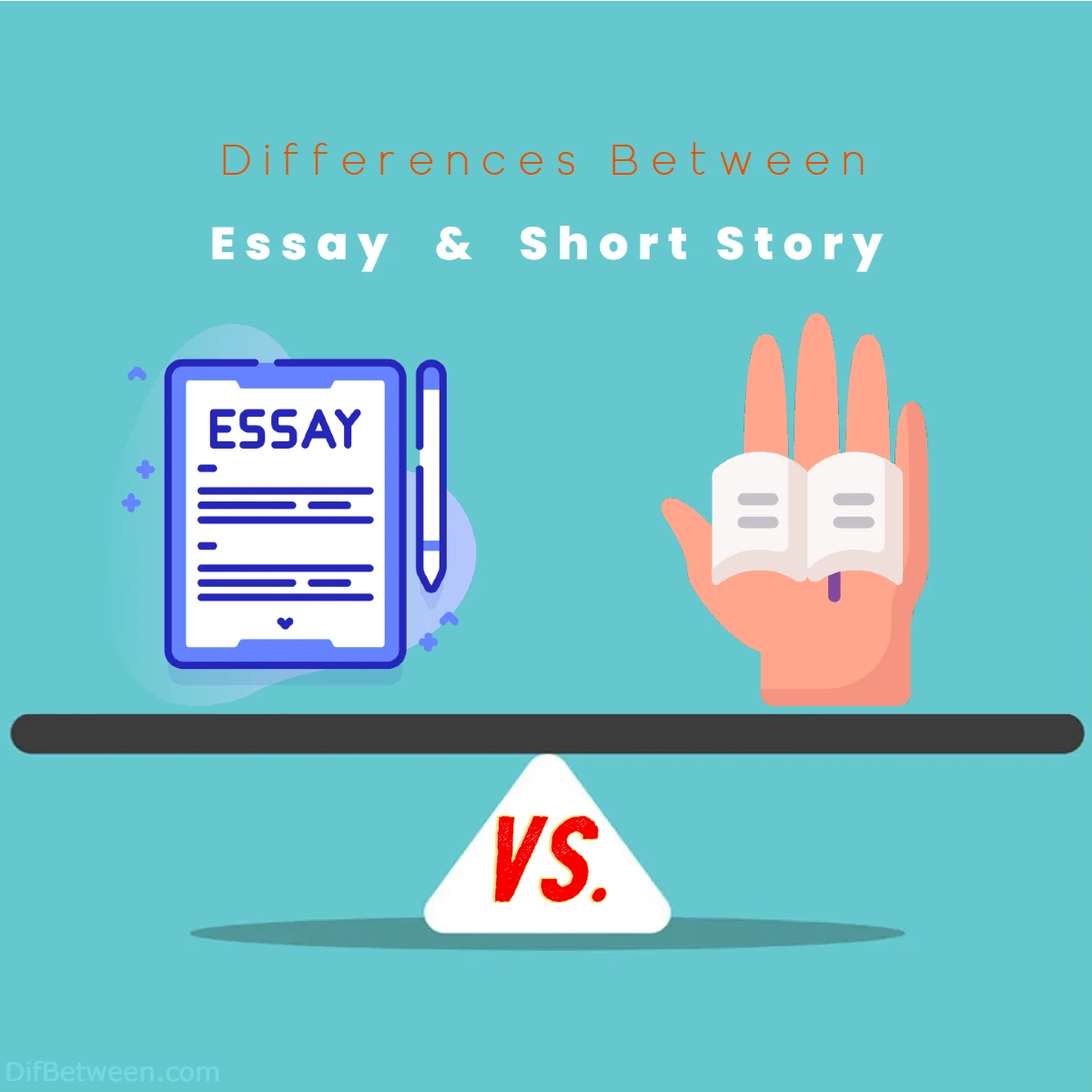
| Aspect | Essay | Short Story |
|---|---|---|
| Genre Classification | Non-fiction | Fiction |
| Purpose and Intent | Inform, persuade, argue | Entertain, evoke emotions |
| Structure and Organization | Introduction, body paragraphs, conclusion | Flexible structure, linear or non-linear |
| Character Development and Plot | Focused on ideas and arguments | Character development, plot |
| Point of View | First person, third person | First person, third person, omniscient |
| Length | Varies, often longer | Generally shorter |
| Tone and Style | Formal, academic | Flexible, creative |
| Author’s Voice | Subdued, objective | Prominent, emotional |
| Examples | Climate change research essay | Short story about saving the world |
| Closure | Conclusive statement or call to action | Open ending, twist |
| Audience | Specific audience (academic, professional) | General audience (fiction enthusiasts) |
| Research and Citation | Extensive research and citation | Little to no research and citation |
| Chronological vs. Non-Chronological | Typically chronological | Can be non-chronological |
| Character Development vs. Author’s Persona | Focus on ideas, less on author’s persona | Author’s persona shapes characters and narrative |
| Verifiability | Requires factual accuracy, verifiability | No need for verifiability |
| Purpose of Language | Informative, persuasive | Evocative, descriptive |
| Length Variability | Varies, often longer | Generally shorter |
| Point of Emotional Impact | Intellectual engagement | Emotional engagement |
| Artistic License | Limited due to factual constraints | Freedom for creative expression |
| Enduring Themes | Reflects enduring issues and topics | Explores themes indirectly through storytelling |
| Literary Devices | Limited use of literary devices | Often employs symbolism, metaphor, etc. |
| Publication | In journals, magazines, online platforms | Literary magazines, anthologies, online fiction communities |
| Subgenres | Various subgenres (argumentative, expository, etc.) | Various genres (science fiction, romance, etc.) |
| Creative Exploration vs. Analysis | Emphasizes analysis | Encourages creative exploration |
| Your Purpose and Message | To inform, persuade, argue | To entertain, evoke emotions |
| Your Creative Freedom | Structured and disciplined | Artistic freedom and creativity |
| Your Target Audience | Specific, often academic or professional | General, fiction-loving audience |
| Your Writing Style | Formal, clear, and objective | Formal to informal, depending on theme |
| Your Preferred Length | Longer, variable length | Generally shorter narratives |
| Your Emotional Impact | Intellectual engagement | Emotional engagement |
| Your Preference for Fiction or Non-Fiction | Non-fiction | Fiction |
| Your Engagement with Research and Citation | Extensive research and citation | Limited research and citation |
| Your Perspective on the World | Share thoughts, insights, reflections | Explore creativity and fictional worlds |
Imagine sitting at your writing desk, contemplating the age-old question: “Should I craft an essay, or should I embark on an enthralling short story?” It’s a delightful conundrum, akin to choosing between a meticulously designed puzzle or the blank canvas of a vibrant painting. As a writer, you’re the artist of your narrative, and the choice between these two distinct forms of expression can be as crucial as selecting the perfect brushstroke or puzzle piece.
Differences Between Essay and Short Story
The main differences between an essay and a short story lie in their genre, purpose, and structure. Essays are non-fiction pieces that aim to inform, persuade, or argue on a specific topic, often featuring a clear structure with an introduction, body paragraphs, and a conclusion. In contrast, short stories are works of fiction designed to entertain and evoke emotions, offering creative freedom in character development and plot. The choice between these forms depends on your intent and creative aspirations, whether it’s conveying facts and arguments through essays or weaving imaginative tales through short stories.
Genre Classification
Essay:
Essays fall under the category of non-fiction. They are meant to convey factual information, explore ideas, and express the author’s opinions in a structured, coherent manner. Essays can cover a wide range of topics, from politics to personal experiences, science to society, and everything in between.
Short Story:
On the other hand, short stories are a form of fiction. They are a realm of creativity where the author crafts characters, settings, and plots to engage and entertain readers. Short stories can take on various themes, from romance to horror, mystery to fantasy, and beyond.
Purpose and Intent
Essay:
Essays are primarily informative or persuasive in nature. They serve to educate, inform, or convince the reader. Whether it’s a research paper, argumentative essay, or a personal reflection, the purpose of an essay is to share knowledge and insights.
Short Story:
Short stories, in contrast, are meant to entertain and evoke emotions. They transport readers into a different world, make them empathize with characters, and keep them hooked with suspense, surprise, or the sheer joy of storytelling.
Structure and Organization
Essay:
Essays are structured, with a clear and logical organization. They typically consist of an introduction, body paragraphs, and a conclusion. The introduction sets the stage, the body presents the argument or information, and the conclusion summarizes the key points.
Here’s a quick overview of the essay structure:
| Component | Purpose |
|---|---|
| Introduction | Captures the reader’s attention and provides background information. |
| Body Paragraphs | Presents evidence, arguments, or information in a logical order. |
| Conclusion | Summarizes the main points and often provides a final thought or call to action. |
Short Story:
Short stories, however, are more flexible in structure. They can have a traditional linear narrative, but they are not bound by the same rigidity as essays. In fact, authors have creative freedom to experiment with structure to build suspense, surprise, or engage the reader’s imagination.
Character Development and Plot
Essay:
In essays, the focus is primarily on ideas and concepts. While you might use examples or anecdotes to support your points, you don’t typically have fully developed characters or a plot. The essay is more about presenting information and arguments in a concise and clear manner.
Short Story:
Short stories are all about characters and plot. You’ll find well-defined characters with distinct personalities, motivations, and often a character arc. Short stories also have a plot that unfolds with a beginning, middle, and end. This plot structure is often central to the story’s impact and entertainment value.
Point of View
Essay:
Essays typically use the first person (I, we) or third person (he, she, they) point of view, depending on the nature of the essay. First person is often used in personal or reflective essays, while third person is more common in academic or informative essays.
Short Story:
Short stories employ a variety of narrative perspectives. They can be written in first person or third person, or even in the omniscient point of view where the narrator has access to the thoughts and feelings of multiple characters.
Length
Essay:
Essays vary in length, but they are typically longer than short stories. They can range from a few hundred words in a short argumentative essay to several thousand words in a lengthy research paper.
Short Story:
As the name suggests, short stories are concise by nature. They usually range from 1,000 to 20,000 words, making them much shorter than most essays.
Tone and Style
Essay:
The tone of an essay can vary, but it tends to be more formal and academic. The style is typically clear, objective, and focused on conveying information or making a persuasive argument. The use of jargon or technical language is common in essays, depending on the subject matter.
Short Story:
Short stories are more flexible when it comes to tone and style. They can range from formal to informal, depending on the author’s intent and the theme of the story. Creative language, dialogue, and descriptive elements are often used to engage the reader’s imagination and emotions.
Author’s Voice
Essay:
In essays, the author’s voice is often more subdued, and the emphasis is on conveying information or arguments objectively. The author’s personal experiences and emotions, if included, are usually presented in a controlled and measured way.
Short Story:
In short stories, the author’s voice plays a more prominent role. It’s a channel through which the author can express creativity and emotional depth. The author’s voice is integral to character development and the overall atmosphere of the story.
Examples
Essay:
Let’s say you’re writing an essay on climate change. You might present data, scientific evidence, and expert opinions to support your thesis. The focus is on educating or persuading the reader based on factual information.
Short Story:
Now, imagine you’re crafting a short story about a young scientist’s journey to save the world from a climate catastrophe. You’ll create characters with personal struggles and aspirations, and you’ll weave a narrative that emotionally engages the reader, while also conveying the urgency of addressing climate change.
Closure
Essay:
Essays often end with a conclusive statement or a call to action related to the topic. The goal is to leave the reader with a clear understanding of the subject matter and a sense of what can be done next.
Short Story:
Short stories, on the other hand, may end with an open ending or a twist. The reader is left with room for interpretation, or they’re taken by surprise with an unexpected resolution that leaves a lasting impact.
Audience
Essay:
Essays are typically written for a specific audience with a particular interest in the subject matter. This audience could be academics, professionals, or the general public, depending on the topic and purpose of the essay.
Short Story:
Short stories are written for a general audience that enjoys fiction and storytelling. They are crafted to engage a wide range of readers and elicit emotional responses.
Research and Citation
Essay:
Essays often require thorough research and citation of sources. Depending on the type of essay, you may need to reference academic papers, books, articles, and other authoritative sources to support your arguments. Proper citation is crucial to maintain credibility.
Short Story:
In short stories, there is no need for extensive research or citations. The author has the creative freedom to invent the world and its rules, allowing the story to unfold in a way that serves the narrative rather than relying on external sources.
Chronological vs. Non-Chronological
Essay:
Essays usually follow a chronological or logical sequence. They present information or arguments in a structured order, making it easier for readers to follow the development of ideas.
Short Story:
Short stories can employ both chronological and non-chronological structures. Authors can use flashbacks, non-linear timelines, or other techniques to engage the reader and add depth to the narrative.
Character Development vs. Author’s Persona
Essay:
In essays, the author’s personal experiences or identity are less prominent. The focus is on presenting ideas, evidence, and arguments objectively, rather than revealing the author’s character or persona.
Short Story:
In short stories, the author’s persona can subtly or prominently influence the narrative. The author’s emotions, experiences, and worldview can shape the characters, events, and the overall tone of the story.
Verifiability
Essay:
Essays require verifiability, where the information presented can be fact-checked and validated. Accuracy and reliability are paramount to maintain the credibility of the essay.
Short Story:
Short stories do not require verifiability in the same way. While they may be grounded in real-world experiences or settings, they are ultimately works of fiction and do not need to meet the same standard of factual accuracy.
Purpose of Language
Essay:
In essays, language serves a primarily informative or argumentative purpose. The language is chosen for clarity, precision, and conveying complex ideas effectively.
Short Story:
In short stories, language serves a dual purpose: to convey the narrative and to evoke emotions. Authors often use descriptive, vivid, and figurative language to immerse the reader in the story’s world and connect on an emotional level.
Length Variability
Essay:
Essays can vary significantly in length, depending on the subject matter and purpose. A short opinion piece might be a few hundred words, while a comprehensive research paper can span several thousand words or more.
Short Story:
Short stories are typically shorter in length, as the name suggests. However, they still offer a wide range of flexibility, from very short flash fiction to longer, more in-depth narratives.
Point of Emotional Impact
Essay:
Essays aim to impact the reader intellectually. They seek to inform, persuade, or educate, but the primary goal is to engage the reader’s mind and critical thinking.
Short Story:
Short stories aim to impact the reader emotionally. They seek to evoke feelings, whether it’s excitement, empathy, fear, or joy. The emotional impact often lingers with the reader long after finishing the story.
Artistic License
Essay:
While essays require factual accuracy and a rigorous approach to information, they leave little room for artistic license. The focus is on conveying knowledge and arguments with precision.
Short Story:
Short stories are a canvas for artistic expression. Authors can exercise creative freedom in character creation, plot development, and world-building, allowing for imaginative and artistic elements.
Enduring Themes
Essay:
Essays often tackle enduring themes or issues and offer insights into their relevance in contemporary society or academia. They contribute to the ongoing discourse on important topics.
Short Story:
Short stories can also explore enduring themes, but they do so in a more indirect and imaginative way. They use storytelling to reflect on these themes through the experiences of characters.
Literary Devices
Essay:
While essays may use literary devices such as metaphors or analogies to enhance clarity or persuasion, they don’t typically rely heavily on such devices. The language in essays is usually more straightforward.
Short Story:
Short stories are fertile ground for literary devices. Authors often use symbolism, metaphor, and other creative language techniques to enrich the narrative and add depth to the story.
Publication
Essay:
Essays are commonly published in academic journals, magazines, newspapers, and online platforms. They are often attributed to specific authors and subject to peer review or editorial oversight.
Short Story:
Short stories can be published in literary magazines, anthologies, or as standalone works. They are also prevalent in online fiction communities. Short stories can be attributed to authors, but they may also appear under pseudonyms or remain anonymous.
Subgenres
Essay:
Essays have a multitude of subgenres, including argumentative, expository, descriptive, narrative, persuasive, and more, each with its own unique purpose and conventions.
Short Story:
Short stories encompass various subgenres, such as science fiction, fantasy, romance, horror, mystery, and literary fiction, each offering a distinct flavor and narrative style.
Creative Exploration vs. Analysis
Essay:
Essays involve analytical and critical thinking. They require the author to dissect and understand the subject matter, offering insights, opinions, and analysis.
Short Story:
Short stories involve creative exploration. Authors imagine characters, settings, and events, creating a world that engages the reader’s imagination and emotions.
Essay or Short Story: Which One is Right Choose for You?
The literary world is a vast and diverse realm, offering writers a multitude of forms and styles to explore. Two such forms are the essay and the short story, each with its own distinct characteristics and appeal. Choosing between them depends on your purpose, the message you want to convey, and your creative aspirations. Let’s delve into the considerations to help you decide which form of expression is the right choice for you.
Your Purpose and Message
Essay:
Choose an essay when you want to inform, persuade, or argue a point. If your aim is to communicate facts, share insights, or advocate for a cause, the structured and logical format of an essay can help you achieve these goals effectively. Essays are ideal for addressing topics that demand intellectual engagement and a rational approach.
Short Story:
Opt for a short story when you wish to entertain, evoke emotions, or explore the human experience. Short stories are the canvas for creative storytelling. They allow you to convey messages and themes through the experiences of characters, creating an emotional connection with your readers. If your goal is to captivate, provoke feelings, and spark imagination, the short story is your medium.
Your Creative Freedom
Essay:
Consider essays when you prefer a structured and disciplined approach to writing. Essays adhere to a clear format, often with an introduction, body, and conclusion. While you have room for creativity in presenting your arguments, essays require a more systematic and organized approach.
Short Story:
Opt for short stories if you crave artistic freedom and wish to explore your imagination. Short stories offer flexibility in structure and style. You can experiment with characters, settings, and narrative techniques, allowing your creativity to flow freely.
Your Target Audience
Essay:
Choose essays when your target audience is looking for authoritative and well-researched information. Essays are often written for specific audiences, such as academics, professionals, or those seeking in-depth knowledge. Your readers expect a well-organized and factually accurate piece.
Short Story:
Consider short stories when your audience enjoys fiction and storytelling. Short stories are crafted to engage a broader, more diverse readership. Your primary aim is to entertain and elicit emotional responses from your readers.
Your Writing Style
Essay:
Opt for essays if you prefer a formal, clear, and objective writing style. Essays demand precision in language and a focus on conveying information or making persuasive arguments. Your writing should be concise and to the point.
Short Story:
Choose short stories if you want to explore various writing styles. Short stories allow you to use descriptive, vivid, and figurative language to immerse your readers in the narrative. Your writing can range from formal to informal, depending on the theme of the story.
Your Preferred Length
Essay:
Consider essays if you’re comfortable with longer pieces of writing. Essays can vary in length from a few hundred words for a short argumentative essay to several thousand words for extensive research papers.
Short Story:
Opt for short stories if you prefer concise narratives. While the length can vary, short stories are generally shorter than most essays, often ranging from 1,000 to 20,000 words.
Your Emotional Impact
Essay:
Choose essays if you aim to impact your readers intellectually. Essays engage the reader’s mind and critical thinking. They focus on informing, persuading, and educating the audience.
Short Story:
Consider short stories if you want to create an emotional impact. Short stories are designed to evoke feelings, whether it’s excitement, empathy, fear, or joy. The emotional impact often lingers with the reader long after finishing the story.
Your Preference for Fiction or Non-Fiction
Essay:
Opt for essays if you prefer non-fiction writing. Essays are a realm of factual information, ideas, and opinions presented in a structured, coherent manner.
Short Story:
Choose short stories if you have a penchant for fiction. Short stories allow you to create characters, settings, and plots to entertain and engage readers with imaginative storytelling.
Your Engagement with Research and Citation
Essay:
Consider essays if you enjoy research and citation. Essays often require in-depth research and the citation of sources to support your arguments. Proper citation is crucial for maintaining credibility.
Short Story:
Choose short stories if you’re not keen on extensive research and citation. Short stories do not require the same level of factual accuracy and referencing as essays.
Your Perspective on the World
Essay:
Opt for essays if you wish to share your perspective on real-world issues, topics, or experiences. Essays are well-suited for presenting your thoughts, insights, and personal reflections on various subjects.
Short Story:
Consider short stories if you want to explore and express your creativity. Short stories provide a platform for creating fictional worlds, characters, and scenarios, allowing you to offer unique perspectives through storytelling.
In the end, the choice between writing an essay or a short story comes down to your individual preferences and the message you want to convey. Both forms have their own merits and can be immensely satisfying for writers. So, whether you’re donning your analytical hat for an essay or letting your imagination soar in a short story, embrace the art of crafting words and share your unique voice with the world.
FAQs
The primary difference is the genre and purpose. Essays are non-fiction works designed to inform, persuade, or argue, while short stories are fictional narratives crafted to entertain and evoke emotions.
Essays follow a structured format with an introduction, body paragraphs, and a conclusion. Short stories offer flexibility in structure, allowing for creative narrative approaches.
Yes, essays tend to be longer, varying from a few hundred words to several thousand, whereas short stories are generally shorter, ranging from 1,000 to 20,000 words.
Yes, essays typically have a formal and objective tone, whereas short stories offer a wider range of styles, from formal to informal, depending on the theme.
Yes, both essays and short stories can employ the first person (I, we) perspective, though it’s more common in short stories when authors want to convey personal experiences.
Essays are often written for specific audiences, such as academics or professionals, while short stories target a general audience of fiction enthusiasts.
No, short stories do not require extensive research or citations, as they are works of fiction. Essays, on the other hand, often require research and proper citation.
Consider your purpose and message. Choose essays for conveying facts and arguments, and short stories for engaging and entertaining your readers through creative storytelling.
Yes, but the use of literary devices is more common in short stories, where authors often employ symbolism, metaphor, and creative language techniques to enhance the narrative.
Essays can be published in academic journals, magazines, newspapers, and online platforms. Short stories find homes in literary magazines, anthologies, and online fiction communities.
Read More:
Contents
- Differences Between Essay and Short Story
- Genre Classification
- Purpose and Intent
- Structure and Organization
- Character Development and Plot
- Point of View
- Length
- Tone and Style
- Author’s Voice
- Examples
- Closure
- Audience
- Research and Citation
- Chronological vs. Non-Chronological
- Character Development vs. Author’s Persona
- Verifiability
- Purpose of Language
- Length Variability
- Point of Emotional Impact
- Artistic License
- Enduring Themes
- Literary Devices
- Publication
- Subgenres
- Creative Exploration vs. Analysis
- Essay or Short Story: Which One is Right Choose for You?
- FAQs
